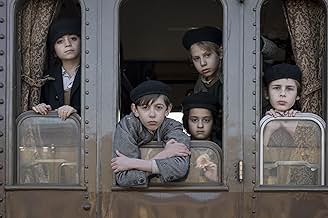Review: "The Children's Train"
- Jennifer Green

- Dec 6, 2024
- 2 min read
This poignant film about family, love, war, and loss is a throwback in style and subject matter to similarly sentimental fare out of Europe from several decades ago.
The Children's Train is reminiscent of 1990s-era Italian classics like Cinema Paradiso, Life is Beautifuland Malena in narrative style and a somewhat wistful portrayal of mid-century Italy. Life was harsh in wartime – illiteracy, poverty, hunger, and death.
But the portrayal on screen softens that harshness through the lens of a child's more innocent perspective. Color schemes in Train also soften, from the crisp modern day to the pastels of the Mediterranean flashbacks and the natural hues of the inland north, where 8-year-old Amerigo finds a new life. The music complements these tonal changes.
Based on true events of children sent to live with families while waiting out the bombing of Naples in the mid-1940s, the film shows a sensitive boy's life as being marked by women. Absent their men sent to war, women kept families and societies functioning.
Amerigo's birth mom does what she has to in order to put food on the table. She tells her son – whose name sounds like "America" (and whose last name translates to "hope") – that his father is in America seeking his fortune.
In Cinema Paradiso, the fatherless child imagines his dad to be Clark Gable, and cinema is used as a metaphor for changing times. In Train, music, an education, and the values of communism and feminism represent the framework for a happy life and a rewarding future, something Amerigo intuitively knows when he makes the heartrending choice to board the train north a second time.
Read the full review on Common Sense Media.
Images courtesy of Netflix.





Amazing content! Short on funds for your next property? Get a Bridge Loan for quick access to cash or explore DSCR Loans for rental property financing!